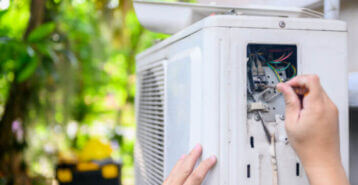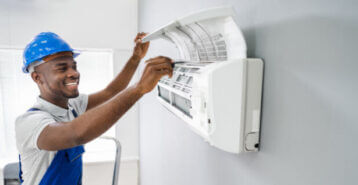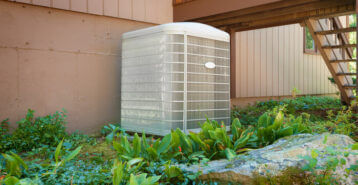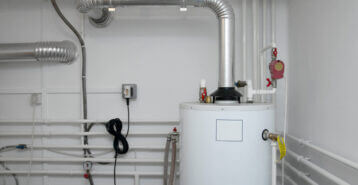Are you doing an HVAC project?
Modernize can pair you with three to four pros in your area, so you can compare options and save time and money.
As homeowners become increasingly conscientious about making their houses more eco- friendly, electric furnaces are starting to gain popularity over gas-powered furnaces. Additionally, some governments are making moves towards phasing out natural gas sources for homes and reduce greenhouse gas emissions — which is leading to a trend away from gas furnaces. Homeowners are now wondering more than ever which type of heating system is best to install in their home — a gas vs. electric furnace.
However, electric furnaces may not be for everyone. Finding the right furnace can be the difference between having a warm, cozy home during the chilly winter months and being uncomfortable in the cold. Understanding the differences between a gas vs. electric furnace will not only help you keep your home warm in the winter, it can also make an impact on your utility bills and home repairs. Continue reading to find out about the similarities and differences between gas-powered vs. electric furnaces in order to make the best choice for your home and family.
Why are People Moving Toward Electric Furnaces?
In some states, governments are urging an end to the use of gas furnaces because of how much they contribute to the greenhouse gas emissions in their states. Additionally, there are concerns that gas-powered furnaces reduce the quality of indoor air, which can have health ramifications. These factors have contributed to a move toward electric furnaces. Homeowners are keeping energy and air quality concerns in mind when deciding on how to heat their homes.
In addition to energy-efficiency and air quality concerns, homeowners in warmer parts of the country are realizing that electric furnaces are better at heating their homes than gas furnaces. Homes in the South, Southwest, and West can benefit from electric furnaces since they tend to experience milder winters and can simply switch on or off the electric heating system based on their needs on a given day.
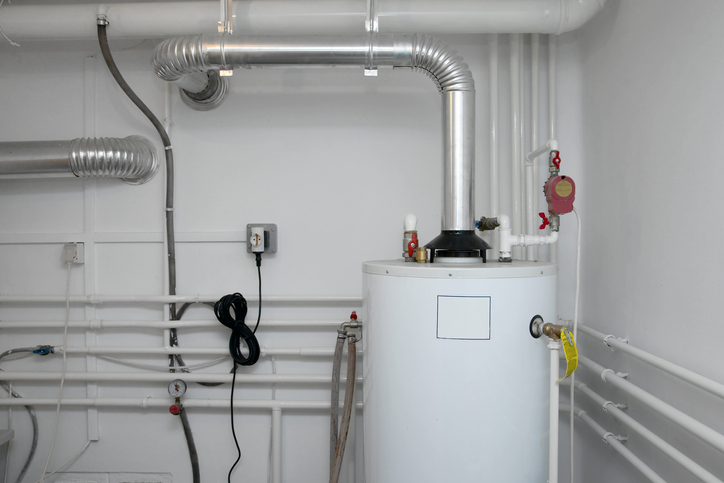
Gas vs. Electric Heating Costs
Despite these advantages of electric furnaces, cost is a major consideration for many homeowners. There is a reason why gas furnaces are still the predominant source of heat in U.S. homes.
In terms of initial purchase costs, electric furnaces are cheaper than gas furnaces. On average in 2026, an electric furnaces costs around $3,000 to install while a gas furnace costs $4,300 or more to install, depending on the brand.
However, ongoing heating costs paint a different picture. When comparing gas vs. electric furnace heating bills, it will cost less to heat a home with a gas furnace. For example, according to NPR, in 2021 it cost homeowners an average of $746 to heat their home with natural gas for one winter season, versus $1,268 to heat homes with electricity during the same season. For the winter of 2023, CNET predicts the average household’s natural gas heating costs to be around $600.
Pros and Cons of Gas-Powered Furnaces
Although gas-powered furnaces can save you money on electric bills, the savings may be outweighed by the cost of installation and maintenance. This section breaks down the pros and cons of choosing a gas furnace.
Find the Right Contractor for Your HVAC Project
Whether you’re ready to begin your project now or need some expert advice, our network of contractors are here to help. With a few simple questions, we’ll find the best local professionals for you
Pros of Gas Furnaces
When evaluating just how efficient a gas furnace is, you should consider its Annual Fuel Utilization Efficiency (AFUE) rating. This refers to the amount of heat a furnace generates compared to the amount of fuel it consumes.
According to federal regulations, a furnace’s AFUE rating should be a minimum of 80%, which means it produces 80% of heat for the fuel it uses. The remaining 20% may be lost through leakage and inefficiencies related to a specific product. Generally, older gas furnaces have an AFUE of 85% and new ones have a 90% rating.
Cons of Gas Furnaces
Pros and Cons of Electric Furnaces
The lower upfront costs you spend on an electric furnace may make it an attractive option, however, if you live in a colder region, the monthly utility bills may actually bust your budget. The following are some pros and cons of electric furnaces for you to consider.
Pros of Electric Furnaces
Cons of Electric Furnaces
When choosing a home heating system, comparing gas vs electric furnaces is a great place to start. However, keep in mind that heat pumps are also an option. We recommend also comparing heat pumps vs. furnaces as you do your research. Also be sure to look into what size furnace your particular home will require prior to installation.
Finding a Local HVAC Contractor
Looking for the right furnace to meet your needs is not a decision you should take lightly. In addition to these pros and cons, it’s also important to factor in your climate when making a decision. Generally, gas furnaces are used by homeowners in the Northeast, Midwest, and Southwest, while electric are favored among those in the Southeast and West.
No matter what kind of furnace you choose, Modernize is here to help you find experienced professionals in your area that you can trust. The pros at Modernize can connect you with local contractors who will help you choose the best type of furnace for your home and complete the installation. In order to help you evaluate contractors to make the most informed decision, we offer a checklist that you can consult as you look at information about different professionals.
Find the Right Contractor for Your HVAC Project
Whether you’re ready to begin your project now or need some expert advice, our network of contractors are here to help. With a few simple questions, we’ll find the best local professionals for you
Reviews from Real Homeowners
Welcome to Homeowner Resources! We are the Modernize blog. Modernize pairs more than 3 million homeowners a year with pre-vetted contractors in their area. This blog started because we believe homeowners should know everything about their homes, from how their HVAC works to which front door colors they might love. On Homeowner Resources, you can find information on every part of your home, right down to how you can negotiate with contractors to get the best price. Here's more about the blog.
Need a contractor? Learn more about how Modernize finds the right pro for you.





